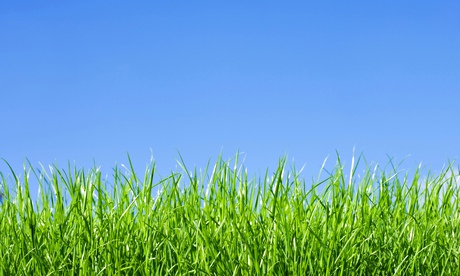
Summer is here at last it seems, with long evenings, the occasional glimpse of the sun between the showers, and the inevitable recommencement of the life and death battle with the patch of green outside the window. Yes, summer, the season of lawns, those slices of domesticated nature that have come to symbolise the march of civilisation, for good or ill.
There was a time when a lawn was just any area of untilled grassland, the haunt of shepherds and Thomas Gray's dead, meeting "sun upon the upland lawn". In fact, the modern usage of the word can be dated back to Gray's lifetime and the change in meaning was part of the 18th-century cult of order and of human control of nature. We owe a lot of good things to the English Enlightenment; sadly, it also seems to be to blame for summer days ruined trying to get the lawnmower to work.
One of the crack troops in this ongoing war is the common (all too common, some might say) dandelion. As Stephen Kenneth Kelen is at pains to point out in his poem Lawn Wars, these weeds are undefeatable, and yet lawn owners feel compelled to do battle with them every year. Why can't we just sit back and enjoy their golden exuberance? There are days when I find myself in full agreement with Grace Bauer's Against Lawn and its "reminder to avoid too much taming / of what, even here, wants to be wild."
It is this element of the tame, of nature moulded to the human will, that makes the lawn the perfect image of suburban contentment. Ownership of a manicured area of grass is one of those things that allow us to "place" people in their appropriate social milieu. It's an association that is playfully exploited by Louis Simpson in his poem On the Lawn at the Villa, where the respectably upper-middle class connotations of the two nouns in the title are ironically foregrounded in the opening lines so as to set up something quite unexpected in the poem that follows.
Of course lawns are only evil to those tasked with maintaining them; for others, especially children, they can be places of delight, grassy playgrounds on which they can, like the pupils in Thomas Hardy's The High-School Lawn, go whirling and laughing through the warm summer. As every with Hardy poem, this seemingly simple piece is tinged with sadness at human mortality. The central image is revisited by Margaret Atwood in The circle game at much greater length, but not necessarily more effectively.
Robert Louis Stevenson's child in The Dumb Soldier is involved in a more solitary kind of game, and his toy soldier hidden in a hollow in the lawn for a year is a kind of gateway into a vision of nature that brings us back to the older meaning of lawn. The poem creates a kind of meeting place for the wild and the tame, as seen through the keen eye of childhood. This is a lawn as it should be.
If the children in these poems possess lawns as their own private worlds, then the old man in joanne burns's dry dock claims his patch of green as an escape from family, the boredom of retirement, and thoughts of his own mortality. It is, however, a battleground of another sort; the ambition is to keep it green and his enemies are the climate, the water authorities and nosy neighbours. The fight is worth it, though, if the outcome is to be "merlin in your suburban dream". A lawn with that kind of magic is one we could all learn to live with.
And so this month's challenge is to write poems about lawns. They may be poems of love or war, memories of childhood games, or odes to back-garden sunbathing. One way or another, please share them here. And just to balance my negative opening, here's a short ode to the lawn by Emily Dickinson to finish with:
Presentiment is that long shadow on the lawn
Indicative that suns go down;
The notice to the startled grass
That darkness is about to pass.

